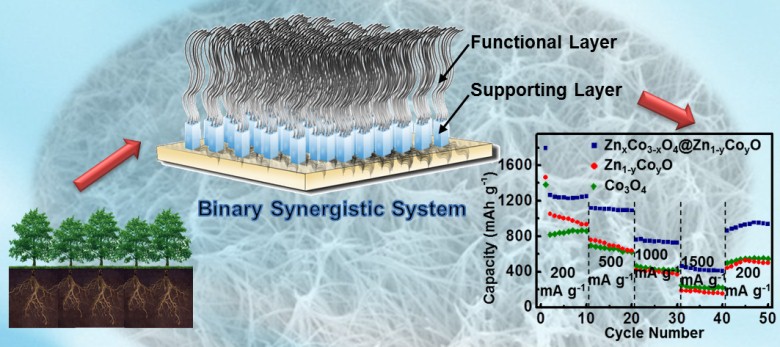Recently, rapid-growing demands for electric vehicles (EVs) have spurred the research on lithium ion battery (LIB) power packs with high power capability and energy density. Transition metal oxides materials are widely studied as the next-generation LIB anode to satisfy this requirement. Now, inspired by the fibrous root structure, Jia Yu et al. synthesized a Co-Zn binary synergistic nanoarray biomimetic materials and used them as anode for LIB. It is known that as a typical hierarchical structure, fibrous root elaborately achieves a transition and fusion between supporting units (root part) and functional units (fibrous part), being able to improve the nutrient absorption and structural support of plants effectively. Therefore, the fibrous root structure may provide new ideas for fabricating high performance LIB electrodes. The researchers assembled the cell and investigated the electrochemical properties of their materials, this fibrous-root-like Co-Zn binary synergistic nanoarray system could maintain a capacity as high as 804 mAhg-1 at a high rate of 500 mAg-1 after 100 cycles, which is much better than that of other reported cobalt-based oxide structures. (See ACS Nano 2016, 10, 2500−2508) 
|